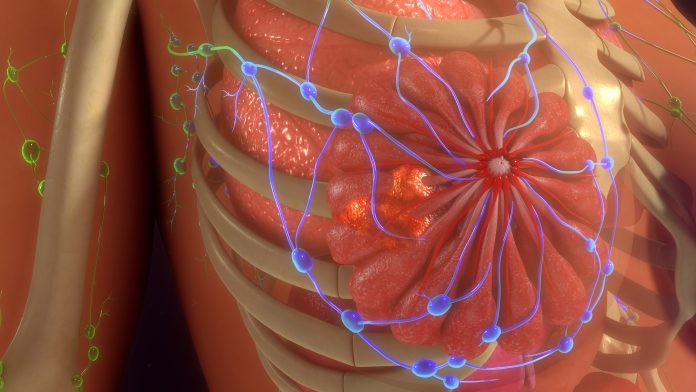
Researchers at the University of Basel and the University Hospital of Basel report a process that helps breast cancer cells implant themselves in certain places in the body. The findings suggest a way of preventing secondary tumors. Their study is published in The EMBO Journal.
“Metastatic colonization of distant organs accounts for over 90% of deaths related to solid cancers, yet the molecular determinants of metastasis remain poorly understood,” wrote the researchers. “Here, we unveil a mechanism of colonization in the aggressive basal-like subtype of breast cancer that is driven by the NAD+ metabolic enzyme nicotinamide N-methyltransferase (NNMT). We demonstrate that NNMT imprints a basal genetic program into cancer cells, enhancing their plasticity.”
For eight years, a team led by Mohamed Bentires-Alj, PhD, professor of experimental surgical oncology University of Basel & University Hospital Basel, worked to establish the role of a cellular enzyme in breast cancer metastasis. The three lead authors Joana Pinto Couto, Milica Vulin, Charly Jehanno, and collaborators discovered a mechanism that appears to support metastasis in a range of aggressive cancers.
As the researchers learned through experiments on animals, overproduction of NNMT is key to metastasis. Overproduction of NNMT causes the cancer cells to also produce more collagen than normal.
It is known from previous studies that wandering cancer cells first have to find their way around in new tissues. The environment there—that is, the semiochemicals and available nutrients and oxygen—is different from that of the original tumor. In this preliminary stage of metastasis, the collagen in the new tissue helps the cancer cells survive and adapt.
The new study reveals that particularly aggressively metastasizing breast cancer cells not only produce an excessive amount of NNMT, but also their own collagen.













